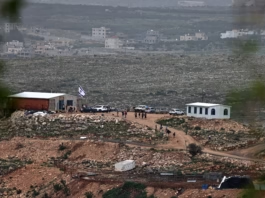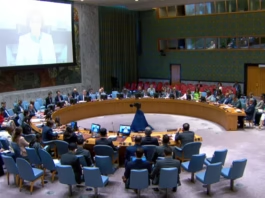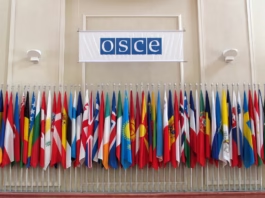The Importance of Peace and Stability in the Middle East
The significance of peace and stability in the Middle East cannot be overstated, as the region grapples with a history of protracted conflicts and geopolitical tensions that have profoundly impacted the lives of its inhabitants. The chronic instability, rooted in historical grievances, ethnic rivalries, and foreign interventions, has led to a cycle of violence that disrupts everyday life and hinders societal development. The aspiration for peaceful coexistence among different cultures and communities is not merely an ideal; it is a fundamental necessity for the region’s future.
For the people of the Middle East, the repercussions of ongoing conflicts extend beyond immediate physical dangers; they permeate social, economic, and psychological aspects of life. Citizens find their daily routines disrupted by violence and uncertainty, which stifles opportunities for education and employment, thus limiting the overall potential of future generations. Furthermore, the humanitarian crises that arise from war and dysfunction exacerbate poverty and inequality, making peace an imperative for improving living standards and fostering social cohesion.
Moreover, stability is a precondition for economic development in the Middle East. Investors and businesses are often deterred by the prospect of instability, leading to reduced foreign investments and limited job creation. A peaceful environment is essential for building strong international relations, as neighboring countries can collaborate on trade, security, and mutual development goals. The establishment of a stable foundation would open pathways for diplomatic negotiations and regional cooperation, enhancing both the safety and prosperity of the Middle East as a whole.
This calls for a concerted effort to address historical grievances through dialogue and understanding. A commitment to fostering peace and stability would not only meet the immediate needs of the populace but would also pave the way for a sustainable future in the Middle East, enabling its societies to thrive in an era of uncertainty.
The Threat of Nuclear Weapons and Weapons of Mass Destruction
The presence of nuclear weapons and other weapons of mass destruction (WMD) in the Middle East poses a significant threat to both regional and global security. These armaments create an environment characterized by tension, fear, and instability among nations. The potential for a nuclear conflict, either through deliberate use or accidental launch, serves not only to escalate tensions between rival states but also endangers civilian populations, contributing to a pervasive sense of insecurity.
Furthermore, the implications of WMD proliferation extend beyond national borders, as neighboring countries may feel compelled to develop their own arsenals in a bid for deterrence. This arms race can lead to an escalation of military spending and a diversion of resources away from vital areas such as economic development and social infrastructure, exacerbating existing tensions. Moreover, the risk of these weapons falling into the hands of non-state actors or terrorist organizations adds an additional layer of danger, as such groups may not be constrained by traditional norms of warfare.
In the event of a conflict involving nuclear weapons, the catastrophic outcomes could be unimaginable. Historical precedents, such as the atomic bombings of Hiroshima and Nagasaki, illustrate the direct and lasting consequences of nuclear warfare on human life and the environment. Beyond the immediate destruction, the aftermath would involve long-term health implications, economic collapse, and environmental degradation, affecting future generations. The existence of WMDs in the Middle East also complicates diplomatic efforts to achieve peace, as countries may prioritize military readiness over negotiations, thus perpetuating a cycle of hostility.
This underscores the urgency of disarmament initiatives aimed at reducing the stockpiles of nuclear weapons and promoting a nuclear-free zone in the region. Established frameworks such as the Treaty on the Non-Proliferation of Nuclear Weapons (NPT) aim to inhibit the spread of these dangerous technologies, but greater international cooperation and commitment are required to ensure their effectiveness. The journey to a nuclear-free Middle East is not only a goal for regional stability but a commitment to global peace.
The Role of the Conference and International Collaboration
The conference focused on establishing a Middle East zone free of nuclear weapons serves a pivotal purpose in enhancing regional security and promoting peace among nations. Initiated in 2019, this gathering underscores the commitment of participating states to disarmament and non-proliferation, showcasing the region’s dedication to addressing nuclear threats collectively. The objectives of this conference center on fostering dialogue, building trust, and facilitating cooperative measures among states. By doing so, the conference acts as a significant platform for sharing perspectives, addressing concerns, and laying the groundwork for future agreements that aim to eliminate or reduce nuclear arsenals in the region.
Since its inception, the conference has made notable progress. Collaborative efforts have included discussions on verification mechanisms, transparency measures, and the necessity of regional frameworks to ensure compliance with obligations concerning nuclear weapons. Such discussions have engaged various stakeholders, including government representatives, civil society advocates, and experts in disarmament. This inclusive approach emphasizes the importance of a unified stance against nuclear proliferation in the Middle East, reinforcing the idea that concerted action is essential for lasting peace and security.
International entities, particularly the United Nations, play a crucial role in supporting these initiatives. The UN’s involvement lends credibility to the conference, establishing a recognized framework for mediation and accountability. Moreover, the UN’s capacity to facilitate cooperation among states cannot be overstated, as it aids in resolving disputes and promoting mutual understanding. By harnessing the resources and expertise of international organizations, nations within the Middle East can collaborate more effectively, strengthening their commitment to a nuclear-free region. Ultimately, such collaborative efforts are vital for overcoming challenges and moving towards a more stable and secure future for the Middle East.
A Call to Action: Building a Nuclear-Free Future Together
As the world navigates an increasingly complex geopolitical landscape, the need for a collective commitment to nuclear disarmament in the Middle East becomes paramount. Achieving a nuclear-free future requires not only a cessation of hostilities but also an unwavering dedication from all stakeholders—governments, organizations, and citizens alike. It is imperative that nations within the region honor their commitments to existing treaties and frameworks aimed at preventing the proliferation of nuclear weapons. By doing so, we can foster an environment conducive to peace, stability, and mutual respect.
Countries in the Middle East must take proactive steps to consolidate ceasefires and engage in meaningful dialogue. This dialogue should extend beyond diplomatic negotiations; it should involve grassroots movements that encompass community voices advocating for peace. The emphasis on educational programs and peace-building initiatives can serve as a catalyst for change, encouraging citizens to actively participate in discussions of nuclear disarmament while fostering a culture of cooperation and understanding. Stakeholders are urged to recognize that the path to a nuclear-free Middle East is a shared responsibility, and it can only be realized through collective action and unity.
The role of the international community cannot be overstated. Global powers, international organizations, and civil society must come together to provide the necessary support and resources to make this vision a reality. Whether through diplomatic intervention, financial aid, or educational initiatives, the time to invest in a nuclear-free future is now. Such efforts are crucial to transforming positive momentum into tangible results, ensuring the safety and security of future generations. Let us seize this opportunity to advocate for a world that prioritizes peace and stability over conflict and fear. Together, we can build a legacy worth inheriting; a world free of the threat of nuclear weapons.




